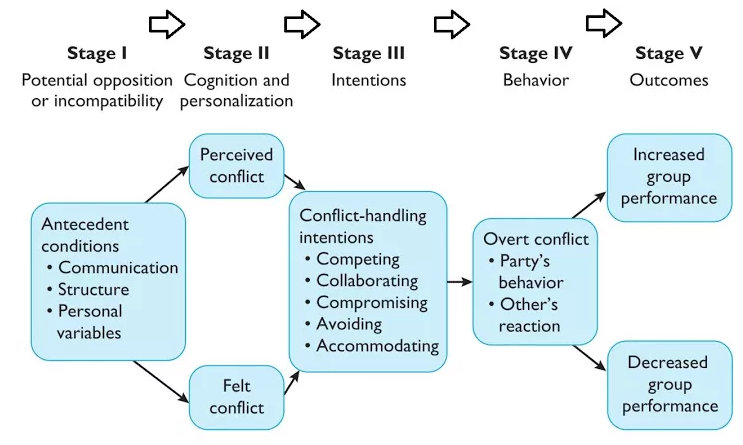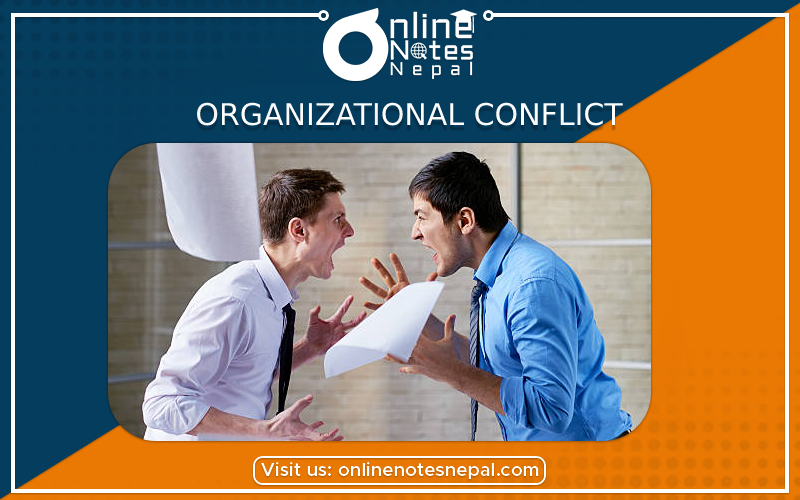Organizational Conflict
Organizational conflict is the state of discord refers to the state of disagreement. It occurs when two or more parties feel themselves in opposition.
Nature and Types of organizational conflict:
- Individual Level
- Group Level
- Organizational Level
They are mutually exclusive, process, specific events, inevitable, perceptions of disagreement, security of resources, scarcity of resources, situational results, and multidimensional.
Sources of conflicts:
- Conflicts in goals
- Conflicts in ideas and attitudes
- Conflict in behavior
- Conflict in resource sharing
- Change
- Confusion
- Poor communication
- Personality clashes
- Lack of job clarity
Types of organizational conflicts:
- Functional or dysfunctional conflicts
(constructive and destructive)
- Task, process, or relationship conflicts
- Interpersonal conflicts
- Intergroup conflict
- Inter-organizational conflict
Functional Conflicts:
It is a positive form of conflict. It supports individual and group goals, which leads to higher performance.
Circumstances for functional conflict:
- Conflicts develop cohesiveness among group members.
- Conflicts lead to innovation and creativity.
- Conflict provides a challenging work environment and enhances opportunities for self-development.
- Enhances work culture leads to up-gradation of various systems within the organization.
Dysfunctional Conflicts:
It is a destructive form of conflict. It obstructs individuals or groups to perform.
The circumstance of dysfunctional conflicts:
- When conflict does not lead to a solution.
- When basic goals of the organization are neglected.
- When people feel defeated.
- Conflict may lead to absenteeism and increase employee turnover.
- Dual management style
Caused by differences in needs, values, and interests of different people.
It can be between individuals as well as between two or more groups.
Process of Conflicts:

Levels of Conflicts:
| Intra-Individual Conflicts |
Inter-Personal Conflicts |
- Conflict due to Frustration
- Value and Goal Conflict
- Role Conflict
|
- Personal Differences
- Information Deficiency
- Role Incompatibility
- Environmental Stress
- Role Incompatibility
- Environmental Stress
|
Levels of conflicts:
| Intra-Group Conflicts |
Organizational Conflicts |
Competition for resources
Task interdependence
Status struggles |
Vertical Conflicts
Horizontal Conflicts
Line and staff conflicts
Role conflicts |
Conflict resolution strategies/approaches:
Interpersonal conflict management strategies
- Forcing/Competing
- Problem-solving/Collaborating
- Compromising
- Avoiding
- Accommodating
Structural Approaches
- Emphasize superordinate goals
- Reduce differentiation
- Improve communication and understanding
- Reduce task interdependency
- Increase resources
- Clarify rule and procedures

